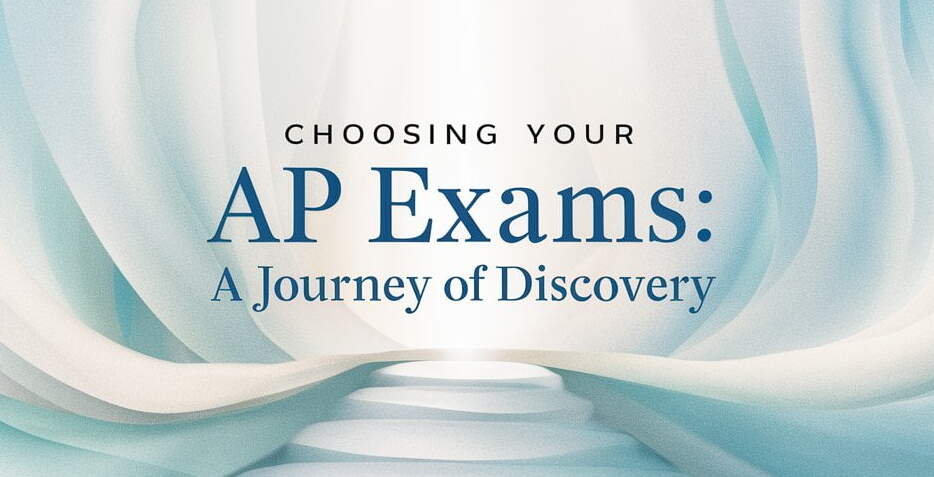Introduction
Importance of AP Classes in High School
Taking AP classes demonstrates a student’s commitment to academic excellence and their ability to handle challenging material. Colleges, especially elite institutions like the Ivy League, view AP classes as a testament to a student’s preparedness for the demands of higher education. These classes cover a range of subjects, from calculus to literature to physics, allowing students to explore into areas of interest. Success in these courses can lead to college credit, advanced placement in college courses, and even scholarship opportunities, making them a valuable component of a high school education.
Purpose of the Blog
The decision of how many AP classes to take is a significant one for high school students, particularly those with aspirations of attending Ivy League schools. Striking the right balance between a challenging course load and maintaining a manageable schedule is crucial. This blog aims to provide comprehensive guidance on this topic, addressing common questions and concerns.
Understanding AP Classes
What Are AP Classes?
AP classes are college-level courses offered to high school students through a program developed by the College Board. These classes cover a broad range of subjects, from mathematics and science to languages and social studies, and are designed to provide students with an opportunity to engage in more rigorous and in-depth study than typical high school courses.
AP classes culminate in a standardized exam that tests students on their knowledge of the course material. Scores on these exams range from 1 to 5, with many colleges and universities granting college credit or advanced placement for scores of 3 or higher. The courses and exams are standardized across the country, ensuring that all students, regardless of where they go to school, are held to the same high standards.
Benefits of Taking AP Classes
1. College Preparation: AP classes help students develop the skills needed for success in college, such as critical thinking, time management, and effective study habits. By tackling college-level material in high school, students can transition more smoothly to the demands of higher education.
2. College Credit and Advanced Placement: High scores on AP exams can earn students college credit, allowing them to bypass introductory courses and potentially graduate early. This can save money on tuition and give students more flexibility in their college course selection.
3. Enhanced College Applications: Admissions officers at competitive colleges, including Ivy League schools, look favorably on students who challenge themselves academically. Taking AP classes demonstrates a student’s willingness to push their intellectual boundaries and their readiness for rigorous academic work.
4. Improved GPA: Many high schools weight AP classes more heavily in GPA calculations, giving extra points for grades earned in these courses. This can boost a student’s overall GPA, making them more competitive in the college admissions process.
5. Academic and Personal Growth: Engaging in AP coursework allows students to explore subjects in greater depth, fostering a deeper understanding and appreciation of the material. This can ignite a passion for learning and help students discover potential career interests.
6. Competitive Edge: In an increasingly competitive college admissions landscape, AP classes can give students an edge over their peers. They signal to colleges that a student is serious about their education and capable of handling challenging coursework.
7. Broader Opportunities: AP classes often provide opportunities for students to engage with peers who are equally motivated and academically inclined. This environment can enhance learning experiences and build a network of like-minded individuals.
To find colleges that offer credit or placement for AP scores, check this out
Check this out to know, How are AP Exams and College credits related?
The Role of AP Classes in College Admissions
How Colleges View AP Classes
Colleges, particularly competitive institutions like the Ivy League, view AP classes as a key indicator of a student’s academic readiness and ambition. When admissions officers review applications, they look for evidence that students have taken full advantage of the academic opportunities available to them, and AP classes are a strong demonstration of this.
1. Rigor of Curriculum: AP classes are recognized for their rigorous content, which mirrors college-level coursework. Admissions committees appreciate students who challenge themselves with these demanding courses, as it shows a willingness to push beyond the standard high school curriculum.
2. Academic Preparedness: Success in AP classes signals to colleges that a student is prepared for the academic rigor of college. It indicates that the student has developed essential skills such as critical thinking, problem-solving, and the ability to manage a heavy workload.
3. Commitment to Learning: Choosing to enroll in AP classes demonstrates a student’s commitment to their education and their desire to explore the subjects of interest further. This level of dedication is attractive to colleges, as it suggests that the student will be an engaged and motivated member of their academic community.
4. Differentiation in Admissions: In a pool of applicants with similar GPAs and standardized test scores, AP classes can be a differentiating factor. They provide additional context to a student’s academic achievements, showcasing their willingness to tackle more challenging coursework.
The Impact of AP Classes on Your GPA
AP classes can have a significant impact on a student’s GPA, often in a positive way. Many high schools use a weighted GPA system, where AP classes are given extra points to reflect their increased difficulty. Here’s how this works:
1. Weighted GPA System: In a weighted GPA system, grades earned in AP classes are given extra weight. For example, an A in a regular class might be worth 4.0 points, while an A in an AP class could be worth 5.0 points. This means that students who excel in AP courses can achieve a GPA higher than the traditional 4.0 scale. This higher GPA can make a student more competitive in the college admissions process, particularly at selective institutions that place a strong emphasis on academic achievement.
2. Demonstrating Mastery: Strong performance in AP classes and on AP exams not only boosts GPA but also demonstrates mastery of the subject matter. Colleges recognize that a high GPA earned through challenging coursework is a more accurate reflection of a student’s capabilities than a high GPA earned through less demanding classes.
3. Balancing Act: While AP classes can enhance a GPA, it’s important for students to balance their course load. Overloading on AP classes can lead to stress and burnout, potentially harming overall academic performance. Colleges prefer to see consistent, strong performance rather than a transcript filled with AP classes and mediocre grades. Taking AP Calculus AB and AP Physics 1 together is a pretty popular choice.

AP Classes and Ivy League Colleges
What Ivy League Schools Expect
Ivy League schools are renowned for their academic excellence and selectivity. As a result, they seek students who not only excel academically but also demonstrate a commitment to challenging themselves. Here’s what Ivy League schools generally expect regarding AP classes:
1. Rigorous Coursework: Ivy League admissions committees expect applicants to take the most challenging courses available at their high school. This typically includes a significant number of AP classes, especially in core academic areas such as mathematics, science, English, history, and foreign languages.
2. Strong Performance: Merely enrolling in AP classes isn’t enough; students must also perform well in them. High grades in AP courses indicate that the student can handle rigorous academic material, which is essential for success at an Ivy League institution.
3. Breadth and Depth: Ivy League schools value both breadth and depth in a student’s coursework. This means students should take a variety of AP classes across different subjects to show they have a well-rounded education. Simultaneously, taking multiple AP classes in areas of specific interest or strength demonstrates a deep commitment to those subjects.
4. High AP Exam Scores: Successful performance on AP exams is another critical factor. Ivy League admissions officers look for scores of 4 or 5, which reflect a high level of mastery in the subject. Strong AP exam scores can also potentially earn college credit, allowing students to advance more quickly in their college studies.
5. Context of School Offerings: Admissions committees consider the context of what is available at the student’s high school. If a school offers a limited number of AP classes, taking most or all of them will be viewed positively. Conversely, at schools with extensive AP offerings, students are expected to take full advantage of these opportunities.
How Many AP Classes Are Ideal for Ivy League Aspirants?
Determining the ideal number of AP classes for Ivy League aspirants depends on various factors, including the student’s individual strengths, interests, and the specific requirements of their high school. However, here are some general guidelines:
1. Quality Over Quantity: While a high number of AP classes can be impressive, it’s essential to maintain strong performance in all courses. Taking fewer AP classes and excelling in them is better than overloading and achieving mediocre grades.
Not all APs are of the same difficulty level. To know more, check out this two part blog on AP Exams That Push Limits : A Guide to the Most Difficult AP Exams Part 1 and Part 2
2. Core Subjects: Ivy League aspirants should focus on taking AP classes in core academic subjects. This typically includes at least one AP class in each of the following areas: math, science, English, history/social studies, and a foreign language. This shows a well-rounded academic foundation.
3. Specialization and Interests: Students should also take AP classes that align with their academic interests and intended college major. For instance, a prospective engineering major might take additional AP classes in physics and calculus, while a future literature major might focus on AP English and history courses.
4. Typical Range: For many Ivy League aspirants, taking between 8 to 12 AP classes throughout high school is a common range. This usually means taking 2 to 3 AP classes in sophomore year, 3 to 4 in junior year, and 3 to 4 in senior year. However, these numbers can vary based on the student’s capacity and the AP offerings at their high school.
5. Balanced Approach: Balancing the number of AP classes with other commitments is crucial. Ivy League schools look for well-rounded students who excel academically while also participating in extracurricular activities, leadership roles, and personal interests. Overloading on AP classes at the expense of these activities can be detrimental.
Check out this blog to know about The complete list of AP Exams
Conclusion
Summary of Key Points
1. Understanding AP Classes: AP classes offer college-level coursework in high school, providing numerous benefits such as college credit, enhanced college applications, and the development of critical academic skills.
2. The Role of AP Classes in College Admissions: Colleges, especially Ivy League schools, value rigorous coursework. AP classes can positively impact your GPA and demonstrate your ability to handle challenging material. However, consistent high performance is crucial.
3. AP Classes and Ivy League Colleges: Ivy League schools expect students to take a significant number of AP classes, particularly in core subjects, and perform well in them. The ideal number of AP classes varies, but typically falls between 8 and 12 throughout high school, depending on individual strengths and school offerings.
4. Balancing Quantity and Quality: Maintaining a balance between the number of AP classes and high performance is vital. Overloading can lead to burnout and negatively impact overall academic and extracurricular achievements. Prioritize self-care and time management to avoid these pitfalls.
5. Advice from Experts and Ivy League Students: Experts and current Ivy League students recommend prioritizing balance, focusing on strengths and interests, effective time management, and maintaining mental and physical health. Utilizing school resources and seeking support when needed are also crucial strategies.
Final Thoughts on Choosing the Right Number of AP Classes
1. Be Realistic: Assess your capacity realistically. Aim for a challenging yet manageable course load that allows you to perform well and stay engaged. It’s better to take fewer AP classes and excel in them than to overextend yourself and risk lower grades and burnout.
2. Align with Your Interests: Select AP classes that align with your academic interests and career aspirations. This not only makes the coursework more enjoyable but also helps build a focused and compelling college application.
3. Balance is Key: Maintain a balanced approach. Combine a rigorous academic schedule with meaningful extracurricular activities, personal interests, and self-care. A well-rounded profile is more appealing to colleges than one that is solely focused on academics.
5. Seek Guidance: Regularly consult with school counselors, teachers, and mentors when making decisions about your AP classes. Their insights and support can help you navigate the challenges and opportunities of high school academics effectively.
FAQs: Frequently Asked Questions
Q. How Many AP Classes Should You Take in High School?
The number of AP classes you should take in high school depends on several factors, including your academic strengths, interests, and college aspirations. A balanced approach is key to managing workload and maintaining high performance. Typically, students take between 8 to 12 AP classes throughout high school. This range allows for a challenging yet manageable course load while demonstrating academic rigor to colleges.
Q. How Many AP Classes Should You Take in Junior Year?
Junior year is often considered the most critical year for taking AP classes, as colleges pay close attention to your performance during this time. Aiming for 3 to 4 AP classes in junior year is common. This number allows you to showcase your academic abilities while leaving room for extracurricular activities and personal growth.
Q. How Many AP Classes Should You Take Sophomore Year?
Sophomore year serves as a foundational year for many students. Taking 2 to 3 AP classes during sophomore year is a reasonable goal. This number provides a solid academic challenge without overwhelming students who are still adjusting to high school coursework.
Q. How Many AP Classes Should You Take for Ivy League Colleges?
Ivy League colleges seek students who challenge themselves academically while maintaining strong performance across all subjects. While the exact number of AP classes can vary, a competitive applicant typically takes 8 to 12 AP classes throughout high school. This includes a diverse selection of AP courses in core academic areas such as math, science, English, history, and foreign languages. It’s essential to prioritize quality over quantity and demonstrate a genuine interest and proficiency in your chosen subjects.
Are you also planning to take Digital SAT? Read all about the New Digital SAT Format



